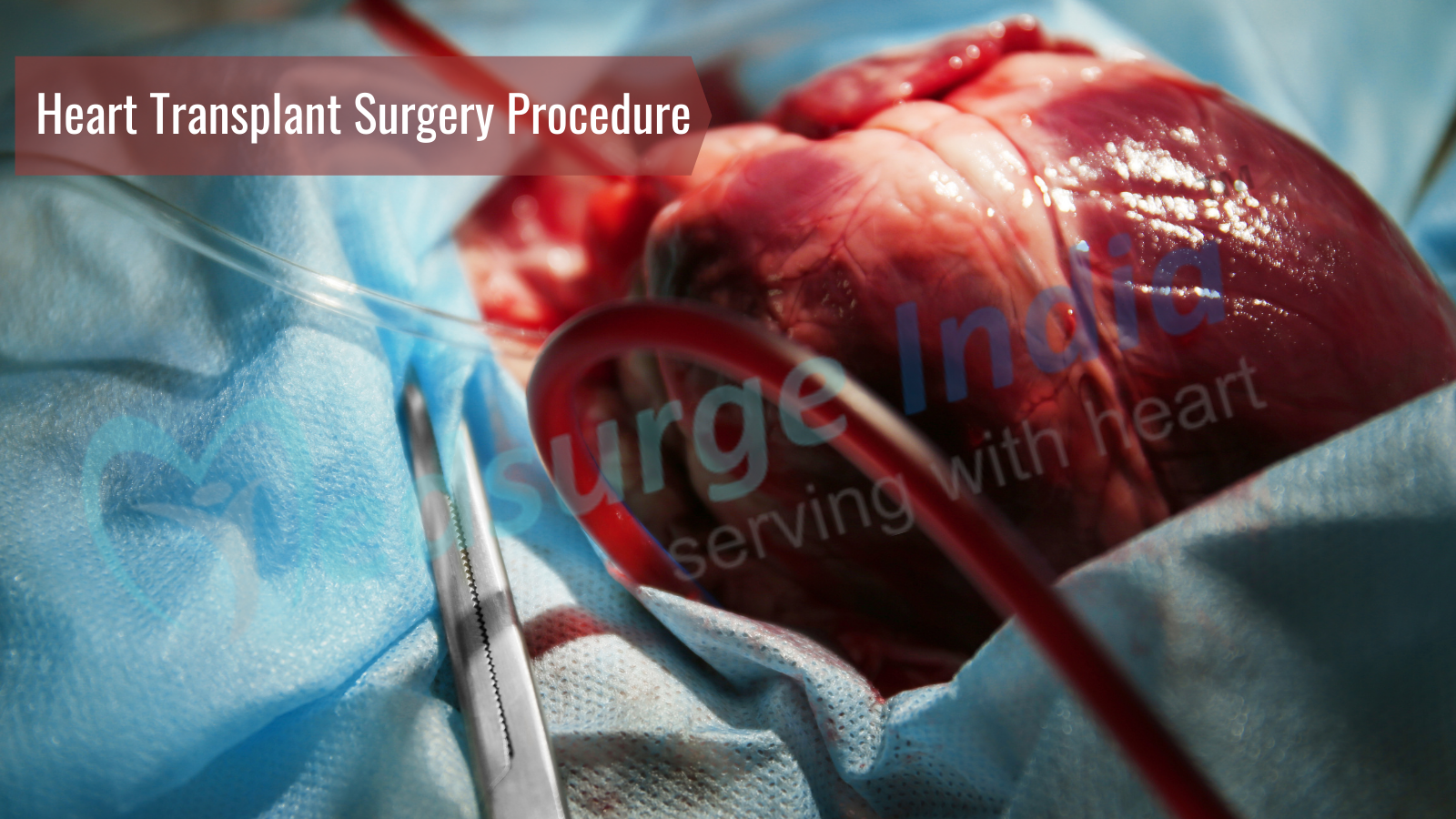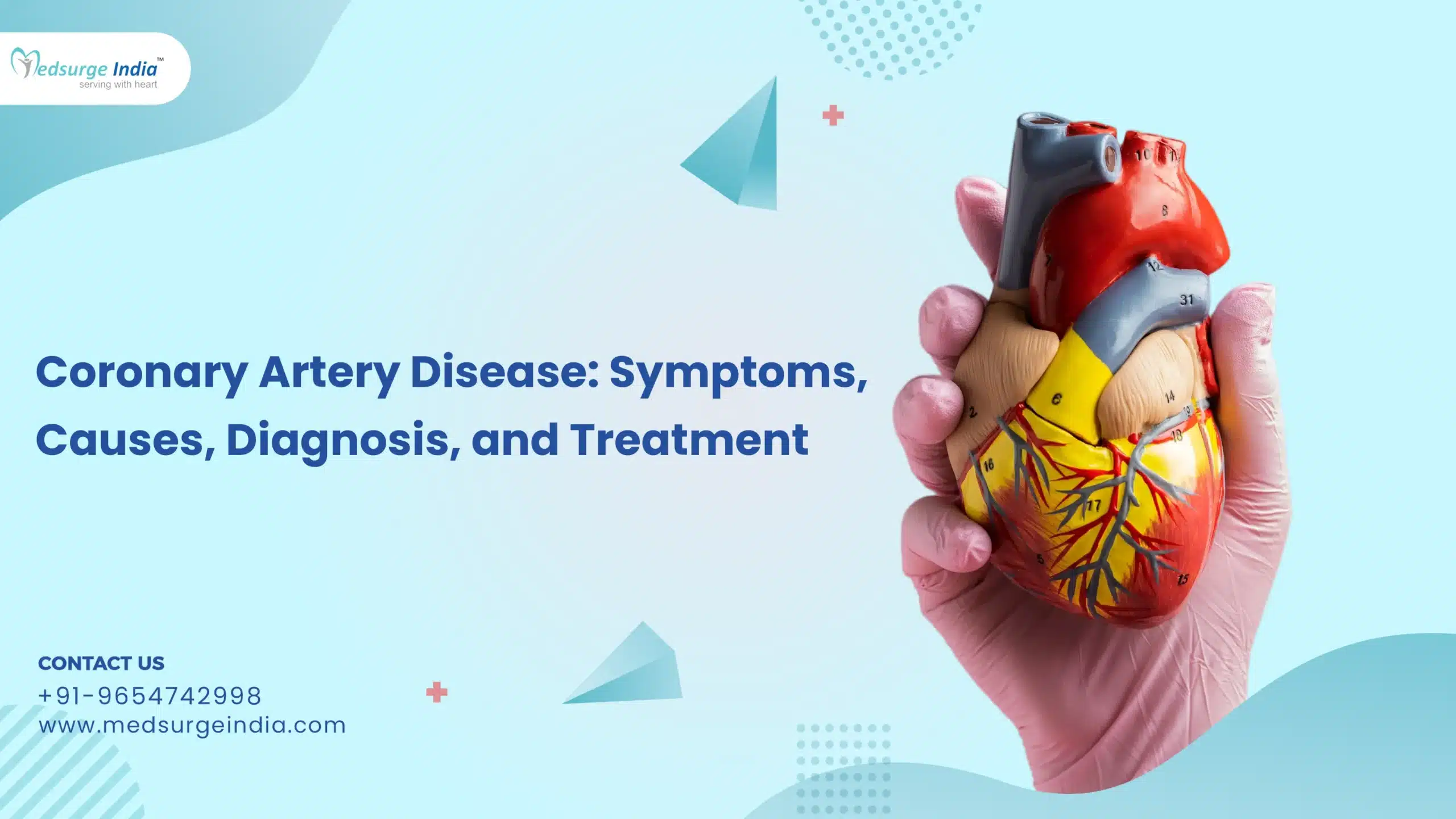
Heart Transplant Surgery – How To Prepare And What To Expect
Heart transplant surgery is a procedure in which the diseased heart is removed and is replaced by an organ donor’s healthy heart. A heart transplant surgery procedure is required in the condition when there is no other treatment choice for heart failure. Heart failure is the condition in which the heart muscle has either become damaged, weak, or not pumping enough blood thus affecting the normal functioning of the heart.
When the noninvasive or less invasive procedures like medications, lifestyle modification don’t show any desired result and the patient meets the criteria for being a candidate for a heart transplant, the procedure is planned by the team of doctors.
Who is the Candidate for a Heart transplant?
The ideal candidate must fit into the following criteria for a heart transplant surgery procedure.
- You must be below 60 -65 years of age.
- You must not have any other associated serious health issues or medical conditions.
- You must have a positive attitude and be ready to adhere to follow the advice of doctors for regular follow-up visits, lifestyle modifications, eating a balanced diet.
Heart transplant surgery procedure is carried out in following conditions –
- End-stage heart failure
- Valve dysfunction
- Congenital defects or Heart defects since birth
- Cardiac Arrhythmias (Irregular heartbeat )
- Coronary artery disease
- Damaged or weak heart muscle
Once you get qualified as an ideal candidate for a heart transplant surgery procedure, you will be listed on the donor list. And when the donor is found with whom your blood sample matches the surgery is performed.
Heart transplant surgery cost in India
Heart transplant surgery costs in India range from 45000 USD to 60000 USD. The cost of surgery depends on various other factors such as type of hospital, type of city, the experience of the doctor, investigations cost, hospitalization stay, surgery cost, and follow-up visits during the recovery period.
The Heart transplant surgery cost in India is affordable and pocket-friendly than other western and developed countries like the U.S.
How to prepare for Heart transplant Surgery
Once you are evaluated by your heart specialist and a team of doctors and listed that you are an ideal candidate for a heart transplant, you are placed on the waiting list to find the donor.Your blood sample and tissue type should match the donor as well as the heart is given to the patient who is sickest and needs it as soon as possible to save his life.
Best hospitals in India for Heart transplant surgery
- Medanta The Medicity – Gurgaon
- Fortis Escorts Hospital New Delhi
- Max Super Speciality Hospital – Delhi
- Apollo hospitals – Chennai
Pre-evaluation
A team of doctors works together to identify the status of the health of the patient. Various investigations are carried out before planning the surgery to evaluate if the procedure could be planned.A multidisciplinary team of a cardiologist, physician, trained nurses, anesthesiologists, surgery, pathology, radiology, and psychiatry follows a multidisciplinary approach in planning heart transplant surgery.
The investigations required are –
- Physical examination
- Family history and medical history
- Kidney function test
- Liver function test
- Pulmonary function test
- Cardiac ultrasound
- Chest x-ray
- Echocardiogram
- Electrocardiogram
- Cancer screening test
- Dental screening
After carrying out the investigations, you would meet a psychologist or psychiatrist to check about your emotional and mental and how well you are prepared mentally for heart transplant surgery.
Waiting for a Donor’s heart
Once the team is determined that you are an ideal candidate for a heart transplant, you are put on the waiting list for a donor organ. Monitoring the overall health in between the waiting time is essential and is taken care of by doctors.
When the Donor’s Heart is Available
The donor’s heart needs to be transplanted to the recipient within 4 hours. Once the donor’s heart is available and the doctors are informed about the same, you need to visit the hospital immediately for the surgery.
In the hospital, the evaluation is done again to check if you are ready for surgery. Once everything is checked and found suitable the surgery is started.
Procedure for heart transplant surgery

- Your doctor would give the incision in your chest and would make the way to reach your heart.
- Your deceased heart would be removed and a healthy donor heart is placed and checked if it is working properly.
- Your heart-lung machine is disconnected once the blood flow is restored.
- You would be on a ventilator to maintain your breathing. After surgery medications and fluids would be given to you intravenously.
What to Expect Post-Heart Transplant Surgery?
- Once the surgery is completed, you would stay in the Intensive care unit for a few days as per the requirement and recovery your body would show.
- You would be removed from the ventilator once your anesthesia weans off. Your stay in ICU might range from 4 to 5 days.
- After that, you might be shifted to a private room and you would be monitored for a few days.
- Your physiotherapist would help in strengthening your body and your dietician would plan your diet plan.
- Heart biopsies would be carried out at regular intervals for a few months (up to 3 months ) to check if the body has accepted the new heart. A heart biopsy is also carried out when it is suspected body is rejecting the new heart.
Recovery Post-surgery
- Once you start showing recovery in hospital you would be discharged from the hospital. It is advised to stay nearby the hospital area for 1-2 months for follow-up visits.
- During discharge, you would be provided the medications you need to take regularly without missing any dose.
- You would be advised to take your medicine on time, monitor your blood pressure, temperature, pulse rate, and weight regularly.
- Fever, fatigue, or infection is the sign of rejection of organ thus you need to consult your doctor immediately if you feel any such signs post-transplant surgery.
Post-Surgery Rehabilitation
- Life after transplant needs physical, mental, emotional support and a positive attitude to resume the daily activities.
- You would be advised to take your medications on time without a miss.
- Avoid alcohol, tobacco products, smoking, fried food to prevent the risk of infection.
- Resume your daily activities very slowly and at your convenience.
- Regular exercise builds stamina and provides strength. Motivate yourself for regular exercise to improve your body’s functioning.
Following your diet plan is very important for healthy living. A healthy, rich balanced diet with a good amount of fruits and vegetables is important to improve strength and prevent the body from infections.
- Limit your fried food, fat, and sugar intake to prevent yourself from raised cholesterol, blood glucose, and fatty liver-like diseases.
- Limit your salt intake to prevent fluid retention in the body.
- Maintaining your mental and emotional health is very important post-surgery to prevent yourself from stress and anxiety.
Heart Transplant Success Rate in India
- Heart transplant is quite successful in India with a success rate of close to 90 percent.
- With advanced techniques and technology, the success rate has increased recently thus increasing the life expectancy for patients.
- The quality of care provided during the first year post-surgery plays an important role in the survival rate of the patient.
Final Note –
There are various associated risks or complications like a rejection of donor organ, bleeding, infection, medications side effects, blood clots post-heart transplant surgery. Recognizing the signs and symptoms for the same is very important to prevent the patient from a life-threatening situation.
Always follow your doctor’s advice of regular follow-up visits to keep a check on the patient during the recovery period, thus better clinical outcomes and quick recovery.












